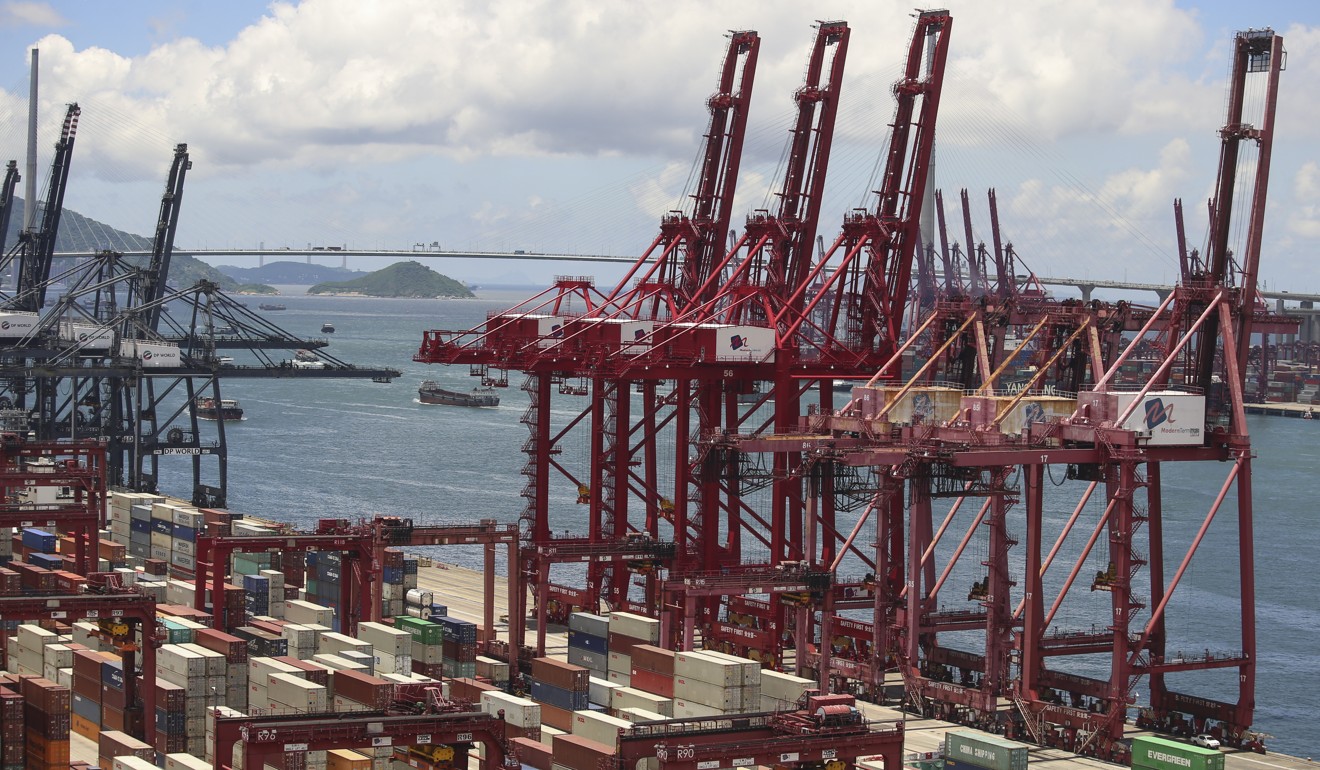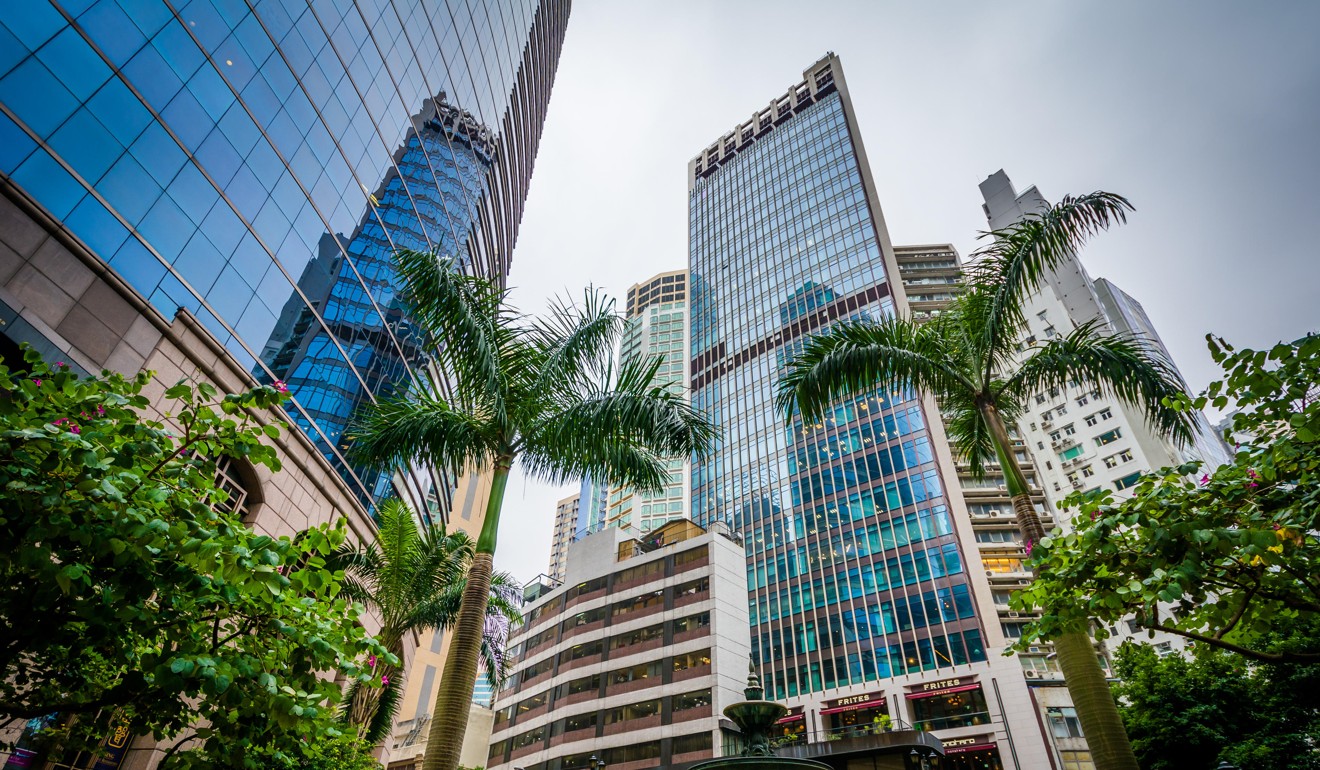
Hong Kong’s ‘last chances’ to maintain its global economic standing
Scholars urge city officials to grab the opportunities presented by the Belt & Road and Big Bay Area initiatives, and the yuan’s internationalisation, to guarantee the city’s prosperous future
Grabbing success from flagship Chinese economic initiatives such as the “The Belt and Road” and the “Big Bay Area”, and the yuan’s internationalisation represent Hong Kong’s last opportunities to retain its global reputation in coming years, as it risks losing its former competitiveness as a financial hub, leading scholars have warned.
“The reform and opening up by Beijing has offered chances to both the mainland and Hong Kong – many companies here survived by managing to keep their cost low by relocated their manufacturing to the mainland. But that model no longer works,” said Anthony Yeh, chair professor of the Hong Kong University, also an Academician of the Chinese Academy of Sciences.
People close to the institute said the opening is aimed at enhancing communication between local Hong Kong and mainland academics, particularly on culture, history, and society, underlining the mainland economy continues to develop and upgrade, pushing up labour costs.

While in Hong Kong, Yeh said the modern services sector has replaced its thousands of factories to become the major pillar of its economy, with just 2 per cent of the city’s population now working in manufacturing, compared with 50 per cent in the 1970s.
Hong Kong’s total economy used to equal half the mainland’s in 1980 – but that ratio has plummeted to only 2.8 per cent 2015, according to Yeh’s speech.
The central government will dump its negative attitude of leaving Hong Kong alone in the past, and include it into a national development strategy ... and Hong Kong must consider its development under this changed scenario
Professor Lau Siu-kai, vice-chairman of The Chinese Association of Hong Kong and Macau Studies, a semi-official think tank, said he thought Hong Kong “has been too conservative in terms of economic structural transformation and integration with the mainland economy”.
“The central government will dump its negative attitude of leaving Hong Kong alone in the past, and include it in the national development strategy ... and Hong Kong must consider its development under this changed scenario,” he said.
For many years Hong Kong acted as a gateway for the West to the Chinese mainland, and still benefits from the world’s second-largest inflow of foreign direct investment (FDI), after the US. It has also been a regional hub for trade, finance, entertainment and shopping for many years.
However, while Hong Kong has undergone significant political change in recent years that has shaken up its society, the mainland government has launched dozens of pilot zones across the rest of the country, to explore free trade and financial opening up.

And under such growing domestic competition, and shifting global economic conditions, Hong Kong also faces another major challenge: that “its traditional largest markets – mainly Europe and the US – are shrinking, while emerging economies such as China are expanding quickly”, argued Victor Zheng, a professor with the Chinese University of Hong Kong.
Senior officials from Hong Kong have long trumpeted that based on its free market, mature legal and financial system, and knowledge about the global market, the special administrative region should continue to act as a “super connector”, that bridges the mainland and overseas markets, to avoid being marginalised amid China’s headline national strategies, such as the Belt and Road.

But some analysts now warn it faces strengthening challenges, not only from the mainland, but from outside China too.
“I would say in terms of financial services, Shenzhen is catching up very quickly. They know about mainland clients better, and don’t forget about foreign agencies,” said Liang Qi, professor with Guangzhou based Sun Yat-sen University.
Hong Kong firms should compete with those from Singapore and London, who are very active in engaging with China, Qi added.
“The next 30 years will be Hong Kong’s last chance to exploit its technological edge, and actively engage with the whole country’s development.
“The Big Bay Area [the grouping of Guangdong province, Hong Kong, and Macau] will bring about significant advances in cooperation,” Qi said, “and a really good platform to commercialise ideas and achievements from labs in Hong Kong’s globally top-ranking universities.”

